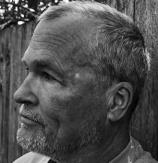The Walkaway
Review
The Walkaway
There is a story, possibly apocryphal, probably true, that is told
about Frank Zappa. He is reported to have started a concert by
walking on stage, sitting down, and staring at the audience while
saying and playing nothing. The audience responded at first with
silence in kind, then murmuring, then muttering, and as time
passed, catcalls, shouts, and boos. Zappa, as the story goes,
smiled and said, "Really brings out the hostility in you, doesn't
it?"
I'm going to confess that I underwent a similar catharsis while
reading THE WALKAWAY by Scott Phillips. Phillips's debut novel, THE
ICE HARVEST, was of such simple, stunning brilliance that it
garnered nominations for just about every mystery award one could
name; made the "Best Of" lists for 2001 of several critics and
reviewers, including this one; and left readers hungry for
Phillips's next novel. And THE WALKAWAY is...well, it's brilliant
as well, but in a far different way.
THE WALKAWAY is both a prequel and a sequel to THE ICE HARVEST. THE
ICE HARVEST was a fairly linear tale, describing the dark events of
a Christmas Eve night in Wichita, Kansas, in 1979. THE WALKAWAY is
its polar opposite, bouncing in viewpoint from 10 years after to
roughly a quarter-century before the events of THE ICE HARVEST and
focusing on Gunther Fahnstiel, introduced at the end, literally, of
that novel. One word of warning: if you have never read THE ICE
HARVEST, or if you have read it, but not recently, get it and read
it now. You will have no idea what is happening in THE WALKAWAY
otherwise. You will also need to write down the names of each of
the characters as you encounter them in THE WALKAWAY or you will be
hopelessly confused.
The question, accordingly, might be: Is all of this worth it? The
answer is a resounding yes. Phillips is a writer of compelling,
stark talent that even during those passages where I was stumbling,
momentarily baffled as to what was going on, I couldn't help but
continue reading and following Fahnstiel who, in 1989, is in the
grip of dementia but is nonetheless able to walk away from the
assisted care facility in which he is confined. His memory for
time, people, and events is a sometime and elusive thing, but with
lemming-like ability he trudges toward his goal, a gravel pit on
the outskirts of the city, even as his purpose for doing so
occasionally and frustratingly eludes him. Friends and family,
meanwhile, search for him while his wanderings result in encounters
that unite Fahnstiel's past with their present and reveal secrets
buried just below the surface of otherwise quiet and ordinary
lives. Phillips, along the way, gently teases and toys with the
framework of the traditional novel. THE WALKAWAY has a traditional
beginning and ending: it is in the middle where Phillips
experiments a bit. It is ultimately fascinating to watch him get
where he is going. The journey is the equal of the
destination.
Roughly a half-century ago a writer named Lawrence Durrell
published four novels that ultimately became known as The
Alexandria Quartet. The first three novels in the series told the
same story from a markedly different viewpoint, with the fourth
carrying the story forward. It was not until the third novel,
MOUNTOLIVE however, that it became even remotely clear as to what
Durrell was doing. I think that Phillips might be up to something
in a similar vein with his work, though it may be closer perhaps to
Faulkner's FLAGS IN THE DUST, in result if not in execution. No
matter; in either event, what we may well be witnessing is quiet
genius aborning. While THE WALKAWAY makes demands, it is worth the
effort and more.
Reviewed by Joe Hartlaub on January 24, 2011
The Walkaway
- Publication Date: September 30, 2003
- Genres: Fiction
- Paperback: 304 pages
- Publisher: Ballantine Books
- ISBN-10: 0345440218
- ISBN-13: 9780345440211




